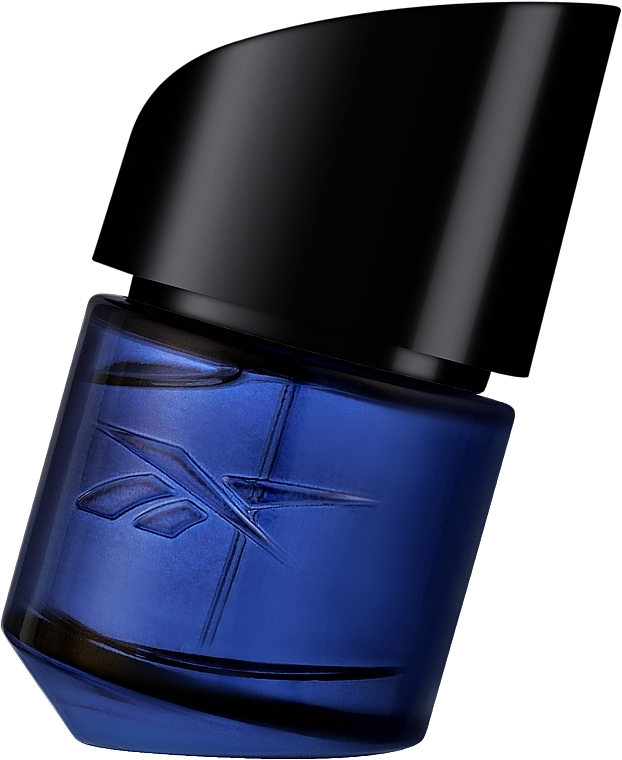In the pursuit of muscle growth and enhanced athletic performance, understanding the critical components of nutrition and hydration is essential. This article focuses on key strategies for optimizing your diet and hydration practices to support your training efforts. By mastering the balance of macronutrients, timing your protein intake, selecting effective supplements, and implementing proper hydration techniques, you can significantly improve your muscle development and overall fitness outcomes.
Whether you’re a seasoned athlete or just starting your fitness journey, these insights will provide practical solutions to common challenges, helping you fuel your body effectively for optimal gains.
In this article you will find:
Understanding Macronutrients for Muscle Growth
When it comes to building muscle, understanding macronutrients is crucial. Macronutrients, which include proteins, carbohydrates, and fats, are the building blocks of our diet and play distinct roles in muscle development. By mastering the balance and timing of these nutrients, you can optimize your muscle-building efforts and enhance your overall fitness journey.
The Role of Proteins
Proteins are often hailed as the most important macronutrient for muscle growth. They are composed of amino acids, which are essential for repairing and building muscle tissue after workouts. Consuming an adequate amount of protein is vital, especially post-exercise when your muscles are most receptive to nutrient uptake. Aim for a daily intake of 1.6 to 2.2 grams of protein per kilogram of body weight, depending on your activity level and fitness goals.
- Lean Meats: Chicken, turkey, and lean cuts of beef are excellent sources.
- Fish: Salmon and tuna not only provide protein but also healthy omega-3 fatty acids.
- Dairy: Greek yogurt and cottage cheese are rich in protein and calcium.
- Plant-Based Options: Lentils, chickpeas, and quinoa are great for vegetarians and vegans.
The Importance of Carbohydrates
Carbohydrates are the primary source of energy for your body, especially during intense workouts. They help replenish glycogen stores in muscles, which is critical for sustaining energy levels and enhancing performance. Not all carbs are created equal; focus on complex carbohydrates that provide sustained energy. Incorporate foods such as:
- Whole Grains: Brown rice, quinoa, and oats.
- Fruits: Bananas, berries, and apples for quick energy and essential vitamins.
- Vegetables: Leafy greens and starchy vegetables like sweet potatoes.
As a rule of thumb, carbohydrates should make up about 45-65% of your total daily caloric intake, particularly if you are training regularly. Timing your carbohydrate intake around workouts can also enhance performance and recovery.
Healthy Fats for Hormonal Balance
Fats are often misunderstood, but they are essential for hormone production, including testosterone, which plays a significant role in muscle growth. Healthy fats also aid in the absorption of fat-soluble vitamins (A, D, E, K) and provide a concentrated source of energy. Include sources of healthy fats in your diet such as:
- Nuts and Seeds: Almonds, walnuts, chia seeds, and flaxseeds.
- Avocado: A great source of monounsaturated fats and fiber.
- Oils: Olive oil and coconut oil for cooking and dressings.
Fats should account for about 20-35% of your daily caloric intake. Prioritize unsaturated fats over saturated and trans fats for optimal health.
Finding the Right Balance
To effectively build muscle, it’s not just about the quantity of macronutrients but also the quality and balance of your diet. A well-rounded approach that emphasizes whole foods, adequate protein, healthy fats, and complex carbohydrates will set you on the right path. Consider tracking your macronutrient intake using apps or journals to ensure you’re meeting your goals.
For further reading on macronutrients and their impact on muscle growth, visit Precision Kettlebells.
Understanding macronutrients is the first step in your journey to muscle growth. With the right knowledge and a strategic approach to nutrition, you can fuel your body effectively and maximize your gains.
Importance of Protein Timing for Optimal Gains
When it comes to maximizing muscle growth, the timing of your protein intake can be just as crucial as the amount you consume. Understanding protein timing involves knowing when to fuel your body with this essential macronutrient to promote recovery, muscle repair, and growth. By strategically planning your protein consumption around your workouts, you can significantly enhance your gains.
The Anabolic Window
After a workout, your body enters a phase known as the anabolic window, typically lasting about 30 minutes to 2 hours. During this period, your muscles are primed to absorb nutrients, particularly protein, which is vital for repairing the micro-tears caused by intense exercise. Consuming protein during this window can help:
- Stimulate Muscle Protein Synthesis: This process is essential for muscle repair and growth.
- Reduce Muscle Soreness: Adequate protein intake can help mitigate delayed onset muscle soreness (DOMS).
- Enhance Recovery: Protein aids in quicker recovery, allowing you to train harder and more frequently.
Pre-Workout Protein Intake
While post-workout protein is critical, pre-workout nutrition also plays a significant role in performance and recovery. Consuming protein before your workout can:
- Provide Sustained Energy: A protein-rich meal or snack can help maintain energy levels throughout your workout.
- Prepare Muscles for Repair: Having protein available in your system can kickstart the recovery process immediately after your workout.
For optimal results, consider consuming a balanced meal containing protein and carbohydrates 1-2 hours before exercising. This can include options like:
- Greek Yogurt with Fruit: A light, nutritious snack that provides both protein and carbohydrates.
- Protein Shake: A quick and convenient option, especially if you’re short on time.
- Chicken or Turkey Sandwich: Lean protein paired with whole grain bread for sustained energy.
Post-Workout Protein Strategies
After your workout, aim to consume protein within 30 minutes to 2 hours to maximize recovery. Here are effective strategies to ensure you meet your post-workout protein needs:
- Protein Shakes: A quick and efficient way to deliver protein to your muscles immediately after exercise.
- Balanced Meals: Combine protein with carbohydrates to replenish glycogen stores and enhance recovery. Ideal meals include grilled chicken with quinoa and vegetables or a salmon fillet with sweet potatoes.
- Protein-Rich Snacks: Options like cottage cheese with fruit or a handful of nuts can help you reach your protein goals.
Daily Protein Distribution
In addition to timing, how you distribute your protein intake throughout the day matters. Research suggests that spreading your protein consumption across meals can be more effective for muscle growth than consuming large amounts in one sitting. Aim for:
- 20-30 grams of protein per meal: This amount is generally sufficient to stimulate muscle protein synthesis.
- Include protein in every meal and snack: This ensures a steady supply of amino acids for muscle recovery and growth.
For more insights on protein timing and its impact on muscle growth, visit Men’s Health.
Understanding the importance of protein timing can help you optimize your muscle-building efforts. By strategically planning your protein intake around workouts and throughout the day, you can significantly enhance your gains and overall performance.
 Choosing the Right Supplements to Enhance Performance
Choosing the Right Supplements to Enhance Performance
In the quest for muscle growth and enhanced athletic performance, many individuals turn to dietary supplements as a means to support their training efforts. While a well-balanced diet should be your primary source of nutrients, the right supplements can provide additional benefits. Understanding which supplements to choose and how they can enhance your performance is essential for achieving your fitness goals.
Essential Supplements for Muscle Growth
When considering supplements for muscle enhancement, focus on those that have been scientifically validated for effectiveness. Here are some of the most popular and well-researched options:
- Protein Powders: Whey protein is one of the most effective supplements for muscle recovery and growth. It’s quickly absorbed and rich in essential amino acids. For those who prefer plant-based options, pea or brown rice protein can also be effective.
- Creatine: This naturally occurring compound helps to replenish ATP (adenosine triphosphate) in your muscles, providing energy for high-intensity workouts. Research shows that creatine can improve strength and muscle mass when combined with resistance training.
- BCAAs: Branched-chain amino acids (leucine, isoleucine, and valine) can help reduce muscle soreness and fatigue, making them a popular choice for athletes looking to enhance recovery.
- Beta-Alanine: This amino acid helps buffer acid in muscles, allowing you to perform at a higher intensity for longer periods. Studies suggest it can improve endurance and reduce fatigue during high-intensity exercise.
Choosing Quality Supplements
Not all supplements are created equal. To ensure you are choosing high-quality products, consider the following tips:
- Check for Third-Party Testing: Look for supplements that have been tested by independent organizations, such as NSF International or Informed-Sport, to ensure they are free from contaminants and meet label claims.
- Read Ingredient Labels: Avoid products with excessive fillers, artificial flavors, or colors. Opt for supplements with minimal ingredients that are easily recognizable.
- Research Brand Reputation: Choose reputable brands known for transparency and quality. Look for customer reviews and testimonials to gauge the effectiveness of their products.
Timing Your Supplement Intake
Just as with whole foods, the timing of your supplements can influence their effectiveness. Here are some guidelines for optimal supplement timing:
- Pre-Workout: Taking creatine and beta-alanine before your workout can enhance performance by providing energy and reducing fatigue.
- Post-Workout: Consuming protein powder and BCAAs immediately after your workout can help kickstart recovery and muscle protein synthesis.
- Throughout the Day: For supplements like multivitamins or omega-3 fatty acids, consistency is key. Taking them at the same time each day can help ensure you meet your nutritional needs.
Consider Individual Needs
It’s important to recognize that each individual’s needs may vary based on factors such as age, gender, training intensity, and overall health. Consulting with a healthcare provider or a registered dietitian can help you determine the right supplements for your specific goals and circumstances.
For more detailed insights on selecting supplements, visit Precision Kettlebells, which offers comprehensive resources on nutrition and fitness.
Choosing the right supplements can significantly enhance your performance and recovery. By focusing on quality products, proper timing, and individual needs, you can effectively support your muscle-building journey.
Hydration Strategies to Support Muscle Development
Hydration is a critical yet often overlooked aspect of muscle development and overall athletic performance. Proper fluid intake not only aids in physical performance but also plays a vital role in recovery, nutrient transport, and muscle synthesis. Understanding effective hydration strategies can enhance your training outcomes and support your muscle-building goals.
The Importance of Hydration for Muscle Growth
Water is essential for several physiological processes that are directly related to muscle development:
- Regulation of Body Temperature: Adequate hydration helps maintain body temperature during exercise, preventing overheating and ensuring optimal performance.
- Nutrient Transport: Water facilitates the transport of nutrients, including amino acids and carbohydrates, to muscle cells, which is crucial for recovery and growth.
- Joint Lubrication: Staying hydrated helps keep joints lubricated, reducing the risk of injury during intense workouts.
- Muscle Function: Dehydration can lead to muscle cramps and fatigue, impairing performance and hindering growth.
How Much Water Do You Need?
The amount of water each person needs can vary based on factors such as body size, activity level, and environmental conditions. A general guideline is to aim for:
- At least 3.7 liters (or about 13 cups) for men and 2.7 liters (or about 9 cups) for women daily, according to the National Academies of Sciences.
- Increased Intake During Exercise: For every hour of intense exercise, aim to drink an additional 0.5 to 1 liter of water to compensate for fluid loss through sweat.
Listening to your body is key; if you’re feeling thirsty or your urine is dark yellow, it’s a sign that you need to hydrate.
Hydration Strategies Before, During, and After Workouts
Implementing a strategic hydration plan around your workouts can enhance performance and recovery:
- Before Exercise: Aim to drink 500-600 ml (about 17-20 ounces) of water at least 2-3 hours before your workout. This ensures you start your session well-hydrated.
- During Exercise: For workouts lasting longer than an hour, consider consuming 200-300 ml (about 7-10 ounces) of water every 15-20 minutes. For high-intensity sessions, electrolyte drinks can help replenish lost minerals.
- After Exercise: Rehydrate with 1.5 liters (about 50 ounces) of fluid for every kilogram of body weight lost during exercise. This can include water, sports drinks, or even protein shakes that contain added electrolytes.
Signs of Dehydration
Recognizing the signs of dehydration is crucial for maintaining performance and promoting muscle growth. Common symptoms include:
- Thirst: A clear indicator that your body needs more fluids.
- Dark Urine: A sign of concentrated urine, indicating dehydration.
- Fatigue: Feeling unusually tired or sluggish can be linked to inadequate hydration.
- Dizziness or Headaches: These symptoms can also arise from dehydration, particularly during intense physical activity.
Incorporating Hydration into Your Routine
To make hydration a consistent part of your fitness routine, consider these practical tips:
- Carry a Water Bottle: Keep a refillable water bottle with you throughout the day to encourage regular drinking.
- Set Reminders: Use smartphone apps or alarms to remind you to drink water at regular intervals.
- Flavor Your Water: If plain water doesn’t excite you, try adding slices of lemon, cucumber, or berries for a refreshing twist.
For more insights on hydration and its impact on performance, visit Men’s Health, which provides valuable information on fitness and nutrition.
By implementing effective hydration strategies, you can support your muscle development, enhance your training performance, and ensure a quicker recovery process. Prioritizing hydration is a simple yet powerful way to optimize your fitness journey. To support muscle growth and optimize performance, understanding the role of macronutrients—proteins, carbohydrates, and fats—is essential. Aim for a daily protein intake of 1.6 to 2.2 grams per kilogram of body weight, focusing on high-quality sources like lean meats, dairy, and plant-based options. Carbohydrates should constitute 45-65% of your diet, prioritizing complex carbs for sustained energy. Healthy fats, making up 20-35% of your intake, are crucial for hormone production and nutrient absorption.
Hydration is equally important; drink at least 3.7 liters for men and 2.7 liters for women daily, adjusting for exercise intensity. Implement a hydration strategy that includes drinking water before, during, and after workouts to enhance performance and recovery. Recognizing signs of dehydration and incorporating practical tips, such as carrying a water bottle and setting reminders, can help maintain optimal hydration levels for muscle development.


 Choosing the Right Supplements to Enhance Performance
Choosing the Right Supplements to Enhance Performance

